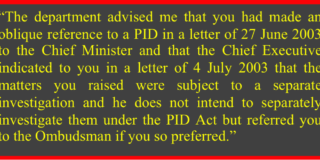
Abstract
This paper explores the philosophical underpinnings of the “banality of evil” as articulated by Hannah Arendt in the context of the Holocaust, particularly the Mauthausen-Gusen concentration camp, and extends this analysis to contemporary conspiracy movements such as MAGA, QAnon, the anti-vaccination movement, and 9/11 trutherism. By employing an existentialist framework, primarily through the lens of Albert Camus’s works—including The Myth of Sisyphus, The Rebel, and The Stranger—this study examines how these movements reflect inauthentic responses to existential anxiety, perpetuating harm through moral disengagement and thoughtless obedience. The research highlights the enduring relevance of the banality of evil, emphasising the need for authentic rebellion and solidarity in countering these phenomena.
Introduction
The Holocaust represents one of humanity’s most harrowing episodes, marked by the systematic extermination of six million Jews and millions of others. Central to this atrocity was the Mauthausen-Gusen concentration camp, operational from 1938 until its liberation in 1945, where an estimated 90,000 to 120,000 prisoners perished under the Nazi regime’s policy of “extermination through labor.” Hannah Arendt’s concept of the “banality of evil,” introduced during the trial of Adolf Eichmann, provides critical insight into how ordinary individuals facilitated such horrors through unthinking compliance and moral detachment. This paper aims to synthesise and expand upon existing analyses by drawing parallels between the historical context of Mauthausen-Gusen and modern conspiracy movements, including MAGA, QAnon, the anti-vaccination movement, and 9/11 trutherism. By applying an existentialist lens, particularly the philosophy of Albert Camus, we uncover the shared mechanisms of charismatic authority, group identity, narrative simplification, and moral disengagement that characterise both historical and contemporary manifestations of evil.
The Holocaust and Mauthausen-Gusen: Historical Context
The Holocaust, orchestrated by the Nazi regime, involved a systematic campaign of extermination against Jews, Romani people, political dissidents, homosexuals, and the disabled. Beginning with anti-Semitic laws in 1933 and culminating in the “Final Solution,” the Nazis employed bureaucratic efficiency and propaganda to dehumanise their victims, enabling widespread complicity in genocide. Mauthausen-Gusen, a Category III camp, epitomised this bureaucratic horror. Established shortly after the Anschluss in 1938, it became infamous for its brutal conditions, where prisoners were subjected to forced labor in granite quarries and armaments production, often leading to death through exhaustion or execution.
The operations of Mauthausen-Gusen relied heavily on the complicity of ordinary individuals, from SS guards to local civilians. This dynamic of thoughtless obedience reflects Arendt’s concept of the banality of evil, where individuals, motivated by duty or fear, perpetrated atrocities without engaging in moral reflection. The liberation of the camp by American forces revealed the extent of human suffering and the moral failures that allowed such a system to function. This historical context provides a foundation for analysing the parallels in modern conspiracy movements, where similar dynamics of conformity and moral disengagement persist.
The Banality of Evil: Philosophical Foundations
Hannah Arendt’s notion of the banality of evil challenges traditional perceptions of evil as inherently malevolent. Her observations of Adolf Eichmann revealed a bureaucrat who, rather than embodying sadistic tendencies, exemplified thoughtless compliance with authority. This detachment from moral responsibility allowed individuals to facilitate genocide, embodying a failure to critically engage with the implications of their actions. This aligns with Immanuel Kant’s emphasis on autonomous moral reasoning, suggesting that evil arises when individuals surrender their judgment to external authorities.
At Mauthausen-Gusen, the banality of evil was manifest in the routine actions of SS guards, who enforced brutal policies as part of their assigned duties, often devoid of personal animosity. Bureaucrats reduced human lives to mere data points, while local civilians normalised the camp’s existence through silence or complicity. This detachment is not unique to historical contexts; it resonates with contemporary movements such as MAGA and QAnon, where similar patterns of thoughtless obedience and moral disengagement emerge.
Albert Camus’s Existentialist Philosophy: A Comprehensive Lens
Albert Camus’s existentialism, particularly his exploration of the absurd, offers a unique framework for understanding the banality of evil. In The Myth of Sisyphus, Camus addresses the conflict between humanity’s search for meaning and the indifferent universe. He posits that rather than succumbing to despair or nihilism, individuals should embrace the absurd and find meaning in their actions. This perspective advocates for authentic living and passionate engagement with life, as exemplified by the figure of Sisyphus, who finds joy in his eternal struggle.
In The Rebel, Camus extends the concept of the absurd to collective action, emphasising the importance of rebellion against oppression while fostering solidarity among individuals. He contrasts rebellion with revolution, which often seeks totalising ideologies that negate human value. The Stranger presents the life of Meursault, whose emotional detachment and indifference lead to his trial and condemnation. Meursault’s eventual rejection of imposed meanings reflects Camus’s call for authentic rebellion.
Camus’s philosophy highlights the ways in which individuals and groups, both in the context of Mauthausen-Gusen and modern conspiracy movements, evade existential responsibility. By analysing these movements through the lens of Camus’s existentialism, we can better understand their mechanisms of moral disengagement and thoughtless conformity.
Modern Conspiracy Movements: Overview and Philosophical Mechanisms
The rise of modern conspiracy movements – MAGA, QAnon, the anti-vaccination movement, and 9/11 trutherism – reflects a contemporary manifestation of the banality of evil. These movements exploit existential anxieties and uncertainties in democratic societies, employing mechanisms such as charismatic authority, group identity, narrative simplification, and moral disengagement to suppress critical judgment and perpetuate harm.
MAGA: Cult-Like Devotion to Trump
The MAGA movement, which emerged during Donald Trump’s 2016 presidential campaign, is characterised by a fervent loyalty to Trump as a saviour figure combating a corrupt establishment. Supporters embrace narratives that simplify complex political realities, such as the claim of widespread election fraud, and justify actions like the January 6 Capitol riot as patriotic. Key mechanisms include:
• Charismatic Authority: Trump’s unfiltered communication style and defiance of political norms create a personal bond with supporters, positioning him as a messianic figure reminiscent of Hitler’s cult of personality at Mauthausen.
• Group Identity: MAGA rallies and symbols foster a strong in-group identity, discouraging dissent and mirroring the pressure to conform that characterised the SS at Mauthausen.
• Narrative Simplification: Slogans like “Make America Great Again” reduce complex issues to simplistic solutions, providing cognitive closure in a turbulent political landscape.
• Moral Disengagement: Opponents are dehumanised and cast as enemies, justifying hostility and violence against them.
While the MAGA movement’s thoughtlessness is voluntary in a democratic context, it reflects a similar dynamic of moral disengagement as seen in the perpetrators at Mauthausen.
QAnon: Apocalyptic Conspiracy
QAnon, which emerged in 2017, alleges that a secret cabal of elite pedophiles controls society, with Trump positioned as the saviour who will expose and defeat them. The movement employs mechanisms such as:
• Charismatic Authority: Q’s anonymous posts create a prophetic mystique, while Trump is seen as the heroic executor of the conspiracy.
• Group Identity: Followers form a tight-knit subculture, bonding over shared beliefs and decoding Q’s cryptic messages.
• Narrative Simplification: The grand conspiracy simplifies societal problems into a single narrative, dismissing contradictions as manipulations by the cabal.
• Moral Disengagement: The demonisation of perceived enemies justifies radical actions, echoing the dehumanisation seen in Nazi propaganda.
The radicalisation potential of QAnon, along with its fantastical narratives, surpasses that of MAGA, drawing closer parallels to the conspiratorial excesses of Nazi ideology.
Anti-Vaccination Movement
The anti-vaccination movement has gained traction in recent years, particularly during the COVID-19 pandemic. Its core beliefs, rooted in skepticism of medical institutions, include:
• Charismatic Authority: Influential figures challenge established medical orthodoxy, gaining trust through defiance rather than through scientific credibility.
• Group Identity: A “health freedom” community unites individuals against perceived threats from “Big Pharma,” fostering a sense of belonging.
• Narrative Simplification: Vaccines are framed as singular causes of health issues, simplifying complex medical realities.
• Moral Disengagement: Medical professionals and officials are vilified, framing vaccine refusal as a moral stance against corruption.
While the anti-vaccination movement engages with existential concerns regarding health autonomy, its reliance on conspiracy theories undermines authenticity and critical engagement.
9/11 Trutherism
The 9/11 truther movement asserts that the September 11 attacks were orchestrated by the U.S. government to justify wars and surveillance. Its characteristics include:
• Charismatic Authority: Experts within the movement lend credibility, but no singular figure rivals the authority of Trump or Q.
• Group Identity: A loose community of “truth-seekers” bonds over skepticism, though less cohesive than MAGA or QAnon.
• Narrative Simplification: The narrative reduces complex geopolitical realities to a single betrayal, providing cognitive closure.
• Moral Disengagement: Government officials are cast as traitors, fostering distrust and apathy toward established narratives.
While 9/11 trutherism poses fewer immediate risks compared to other movements, its intellectual niche highlights the ongoing relevance of existential anxieties in shaping belief systems.
Philosophical Mechanisms: Comparative Analysis
These modern conspiracy movements share mechanisms with the banality of evil observed at Mauthausen-Gusen, illustrating the suppression of critical judgment:
• Charismatic Authority: The cult-like devotion to figures such as Trump, Q, and influential anti-vaccine advocates fosters obedience and conformity.
• Group Identity: Strong in-group dynamics discourage dissent, mirroring the SS’s unity at Mauthausen.
• Narrative Simplification: Simplistic narratives provide cognitive closure, akin to the scapegoating seen in Nazi propaganda.
• Moral Disengagement: Dehumanisation of opponents justifies harm, with QAnon’s extreme denomination reflecting the closest parallels to Nazi ideology.
While all movements reflect thoughtless conformity, modern participants engage voluntarily, contrasting the coerced compliance of Mauthausen’s perpetrators. Nonetheless, the harms stemming from these movements – polarisation, disinformation, and health crises – underscore the persistent relevance of Arendt’s insights.
Existentialist Perspectives: A Multifaceted Analysis
The existentialist framework, particularly the philosophies of Camus, Kierkegaard, Sartre, Heidegger, Frankl, and Beauvoir, enriches our understanding of why these movements represent inauthentic responses to existential anxiety. By focusing on Camus’s philosophy, especially The Stranger, we can analyse the indifference and moral disengagement prevalent in both historical and contemporary contexts.
Albert Camus: The Absurd, Rebellion, and Solidarity
Camus’s exploration of the absurd posits that life lacks inherent meaning, leading to existential anxiety. Rather than resorting to nihilism, he advocates for authentic living through passionate action. The figure of Sisyphus embodies this struggle, finding joy in the act of pushing his boulder despite its futility.
In The Rebel, Camus emphasises the importance of collective rebellion against oppression, grounded in solidarity with others. This contrasts with totalising ideologies that seek to impose meaning and negate human value. The character of Meursault in The Stranger exemplifies the absurd through his emotional detachment and indifference, ultimately leading to his rejection of imposed meanings.
The mechanisms of modern conspiracy movements mirror the existential flight from meaninglessness observed at Mauthausen-Gusen. Individuals in these movements evade existential responsibility by conforming to simplistic narratives that provide a sense of purpose.
Indifference: Moral Disengagement
Meursault’s detachment in The Stranger reflects the banality of evil’s indifference, enabling senseless violence. This indifference resonates with the actions of Mauthausen’s perpetrators, who enacted brutality as part of their routine. Modern movements similarly exhibit moral disengagement:
- MAGA: Dehumanisation of opponents fosters hostility, exemplified by the January 6 riot.
- QAnon: Demonisation of the cabal justifies violence, mirroring the extremes of Nazi propaganda.
- Anti-Vaccination: Vilifying health officials undermines public trust, akin to civilian silence during the Holocaust.
- 9/11 Trutherism: Distrust in government fosters apathy, albeit less harmful than other movements.
Meursault’s eventual rebellion against indifference contrasts with the unreflective detachment of modern believers, highlighting the importance of authentic engagement.
Rebellion and Solidarity: Authentic Defiance
Meursault’s confrontation with the chaplain represents a solitary rebellion, foreshadowing the collective defiance found in Camus’s philosophy. The resisters at Mauthausen-Gusen exemplified this rebellion, finding meaning in solidarity with fellow prisoners. In contrast, modern movements often present pseudo-rebellions:
- MAGA: Loyalty to Trump mimics rebellion but ultimately conforms to his narrative.
- QAnon: Decoding Q’s messages feigns rebellion while imposing a totalitarian worldview.
- Anti-Vaccination: Vaccine refusal appears defiant but undermines collective health.
- 9/11 Trutherism: Skepticism masquerades as defiance but avoids confronting complexity.
Camus’s emphasis on solidarity and shared humanity challenges the divisiveness inherent in modern conspiracy movements.
Søren Kierkegaard: The Crowd and the Leap of Faith
Kierkegaard critiques “the crowd” as a source of inauthenticity, where individuals conform to avoid personal responsibility. Mauthausen’s guards exemplified this merging into the SS ethos, while modern movements—MAGA, QAnon, anti-vax, and trutherism—demonstrate similar crowd dynamics. Kierkegaard’s concept of the “leap of faith” encourages individuals to seek personal meaning, contrasting the collective conformity that characterises these movements.
Jean-Paul Sartre: Bad Faith and Freedom
Sartre’s notion of bad faith involves denying one’s freedom to escape the anxiety of choice. Perpetrators at Mauthausen rationalised their actions as “following orders,” while modern believers similarly evade responsibility by adhering to conspiracy narratives. The most extreme form of bad faith can be seen in QAnon, where reality is reshaped to fit a conspiratorial framework. Sartre’s call for authentic freedom remains unmet by these movements, echoing Meursault’s rejection of imposed meanings.
Martin Heidegger: Inauthenticity and Being-Toward-Death
Heidegger’s concept of authenticity involves confronting mortality and rejecting the “they.” Mauthausen’s guards aligned with the Nazi “they,” while modern movements seek false meanings through charismatic leaders. QAnon’s apocalyptic narratives represent the most totalising escape from authenticity, while anti-vax advocates pursue health autonomy in a similarly misguided fashion. The challenge of confronting fragile narratives is essential for fostering authenticity.
Viktor Frankl: Meaning in Suffering
Viktor Frankl, a survivor of Mauthausen, emphasised the importance of finding meaning in suffering. Prisoners who resisted or maintained hope exemplified this philosophy, while perpetrators outsourced meaning to Nazism. Modern believers often seek purpose through conspiracy narratives, which ultimately undermine authentic engagement with life’s complexities.
Simone de Beauvoir: Ethics of Ambiguity
De Beauvoir’s The Ethics of Ambiguity argues that freedom entails responsibility for others. Mauthausen’s perpetrators surrendered to Nazi absolutism, while modern movements prioritise their ideologies at the expense of shared humanity. De Beauvoir’s call for ethical engagement and recognition of ambiguity resonates with the need for solidarity in countering divisive narratives.
Comparative Analysis: Camus’s Lens and Beyond
The analysis reveals both similarities and distinctions among these movements and their historical counterparts:
Similarities:
- All movements reflect a flight from the absurd, seeking false meanings that provide cognitive closure—whether through Nazism, Trump’s vision, Q’s conspiracy, health autonomy, or skepticism.
- Indifference enables moral disengagement, from the detachment of Mauthausen’s perpetrators to the dehumanisation seen in modern conspiracies.
- Pseudo-rebellions characterise these movements, contrasting with the authentic rebellion of Meursault and the resisters at Mauthausen.
Distinctions:
- Scale and Impact: The genocide at Mauthausen dwarfs the harms posed by modern movements, with QAnon and anti-vax presenting greater risks than MAGA’s divisiveness or trutherism’s skepticism.
- Narrative Scope: QAnon’s apocalypticism and anti-vax paranoia surpass the political narratives of MAGA and the revisionism of trutherism, aligning more closely with Nazi conspiracies.
- Radicalisation: QAnon and anti-vax movements drive direct action more than MAGA’s electoral focus or trutherism’s intellectualism.
- Authenticity: Anti-vax concerns engage existential anxieties more than MAGA or trutherism, yet its reliance on conspiracy undermines the clarity of Meursault’s insights.
Philosophical Implications: Countering the Banality of Evil
The insights gained from Camus and other existentialists yield profound implications for addressing the banality of evil in contemporary contexts:
Confronting the Absurd (Camus, Sartre)
- Camus’s acceptance of the absurd and Sartre’s emphasis on freedom challenge individuals to reject false meanings. Education that fosters critical thinking can combat the myths propagated by QAnon or the slogans of MAGA.
Overcoming Indifference (Camus, Beauvoir)
- The indifference that enabled harm at Mauthausen and in modern movements can be countered by promoting empathy and pluralism, as advocated by Beauvoir.
Authentic Rebellion (Camus, Kierkegaard)
- The authentic rebellion exemplified by Meursault and the resisters at Mauthausen calls for activism and dialogue that challenge conspiracies without resorting to divisiveness.
Solidarity and Meaning (Camus, Frankl)
- The importance of solidarity and shared humanity, as emphasised by Camus and Frankl, is essential for countering the fragmentation seen in modern movements.
Systemic Reform (Camus, Heidegger)
- The banality of evil thrives in systemic structures—be it Nazi bureaucracy or contemporary online platforms. Disrupting the networks that sustain QAnon and anti-vax movements aligns with Camus’s rejection of oppression and Heidegger’s call for authenticity.
Conclusion
The historical context of Mauthausen-Gusen serves as a stark reminder of the banality of evil, where thoughtless obedience facilitated genocide. This dynamic persists in contemporary movements such as MAGA, QAnon, the anti-vaccination movement, and 9/11 trutherism, each reflecting a flight from the absurd through charismatic authority, group identity, narrative simplification, and moral disengagement. Camus’s philosophy, particularly the journey from indifference to rebellion in The Stranger, alongside insights from Kierkegaard, Sartre, Heidegger, Frankl, and Beauvoir, reveals these movements as inauthentic responses to existential anxiety. While the harms posed by modern movements pale in comparison to the atrocities of the Holocaust, their thoughtlessness serves as a warning of the fragility of democratic values. By confronting the absurd, embracing authentic rebellion, and fostering solidarity, we honour the victims of Mauthausen and safeguard society against the pervasive threats of thoughtlessness and disengagement.


